The Ego of the “Investor” Causes Investment Failure.
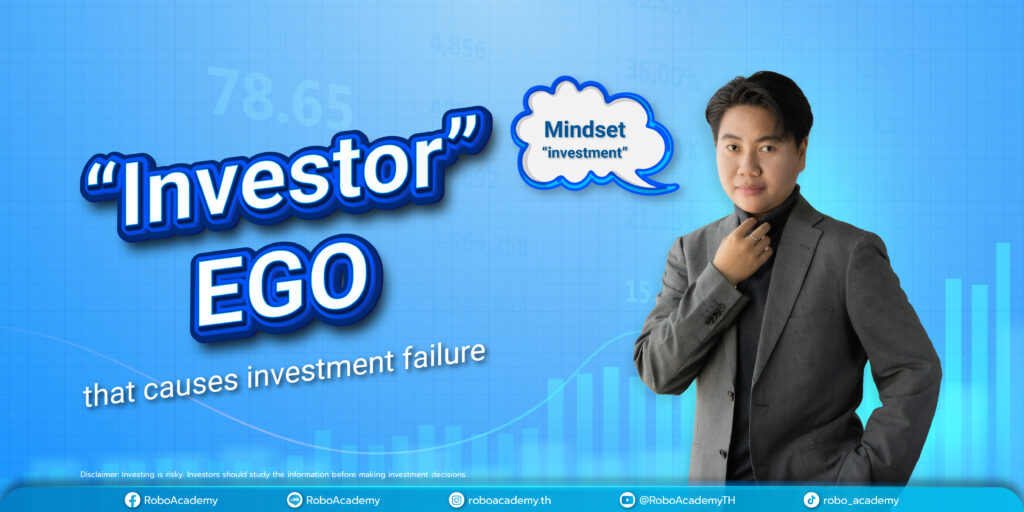
In trading, many are familiar with the saying “I know this, I know that.” This phrase is most common with ego-driven investors who hate losing mostly due to their own decision making. Let’s take a look at the biases that ego investors face and how to prevent this from happening to you.
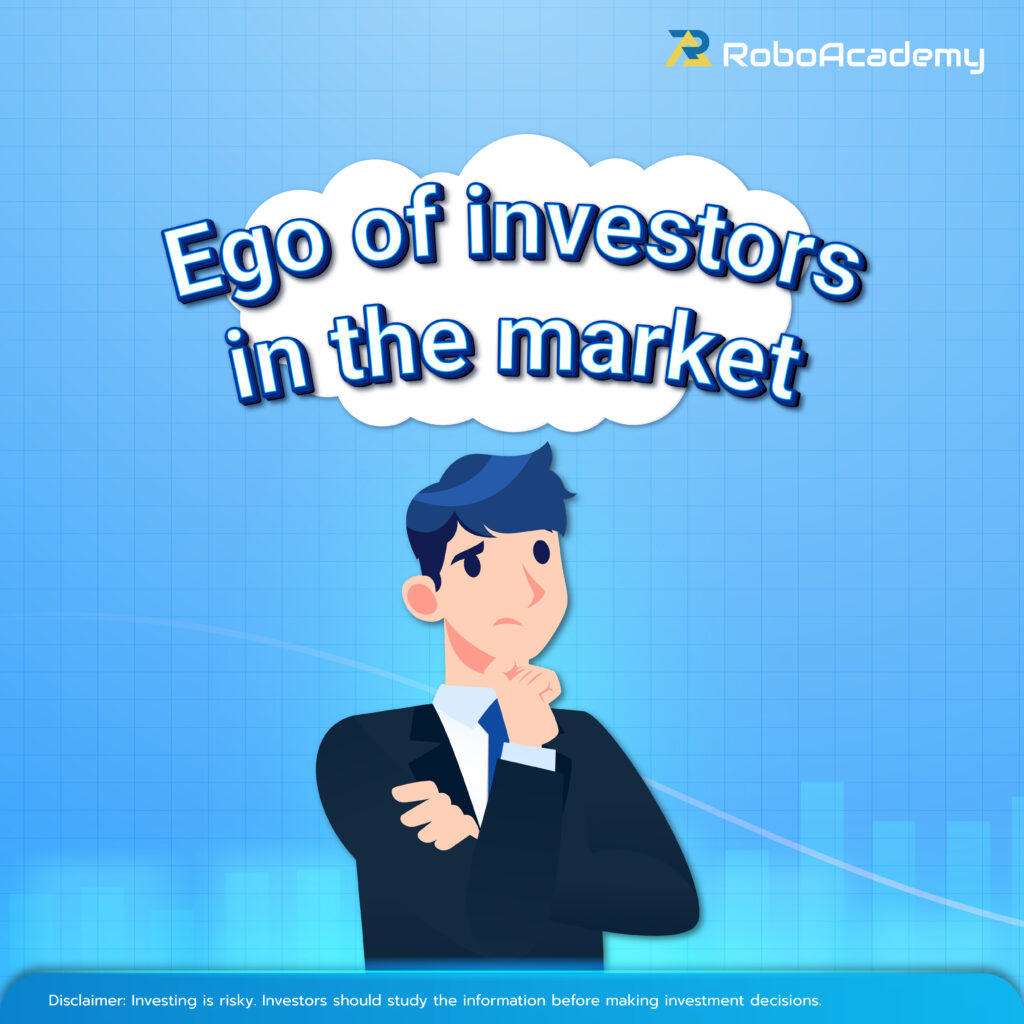
The ego of investors in the market
Unable to control oneself or difficulty to control yourself (Self-Control Bias) is common with investors who set long-term investment goals. For the investment portfolio of this group of investors, they usually invest in dividend stocks. Deciding between spending for short-term happiness or investing in funds that pay dividends so one can use the dividends to buy happiness first is the usual dilemma. On hindsight, stocks or funds that do not pay dividends have better long-term returns.
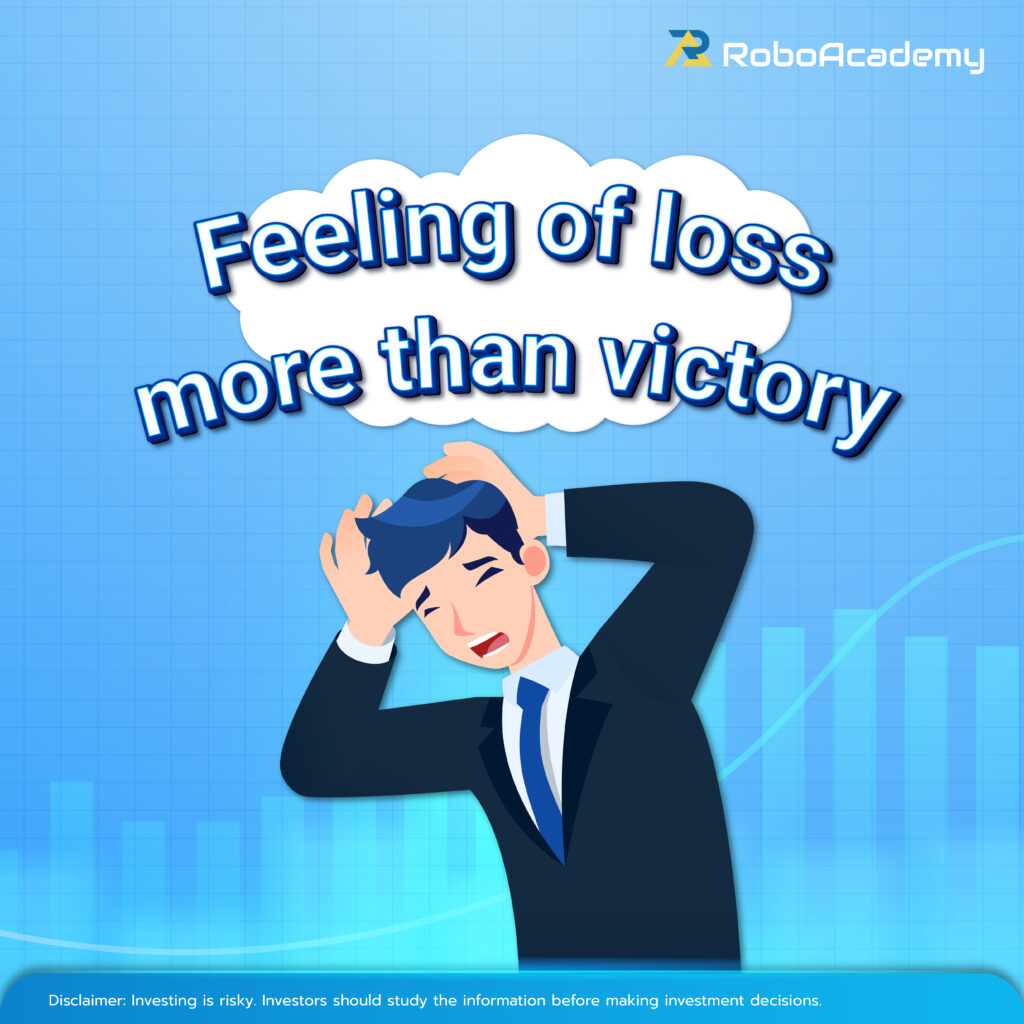
The feeling of loss is greater than victory (Loss Aversion).
On average, traders feel more losses than wins (Loss Aversion). It’s a textbook saying where, “If you don’t sell, you don’t lose.” This bias prevents investors from selling unprofitable stocks because of fear of loss. It seems that the stock shows no signs of going back up but investors are willing to hold stocks until the price returns. On the other hand, when stocks go up, investors with this bias will rush to sell stocks because of fear that the stock market will go down. This limits the investors’ profits. Instead, investors should limit their losses and increase the opportunity to make a profit.

The stock market did not perform as expected. You have to find reasons that will make you feel comfortable (Cognitive Dissonance).
This is what investors face when receiving new information about the market or stock inconsistent with their own understanding. Traditional investment attitudes, emotions, beliefs, or values that one believes in cause discomfort. One deals with dilemma and it forces one to find reasons to reduce that unpleasant feeling (Cognitive Dissonance).

Already knowing that it must be like this (Hindsight Bias)
Traders feel like they already know what it should be like in trading. But in reality, events are unpredictable. Investors who have this bias usually say when stocks fall, “Historical Bias” or “This stock will go down, it’s a shame I didn’t sell first”. Investors overestimate the market’s predictability. In other words, they underestimate the uncertainty of the market.
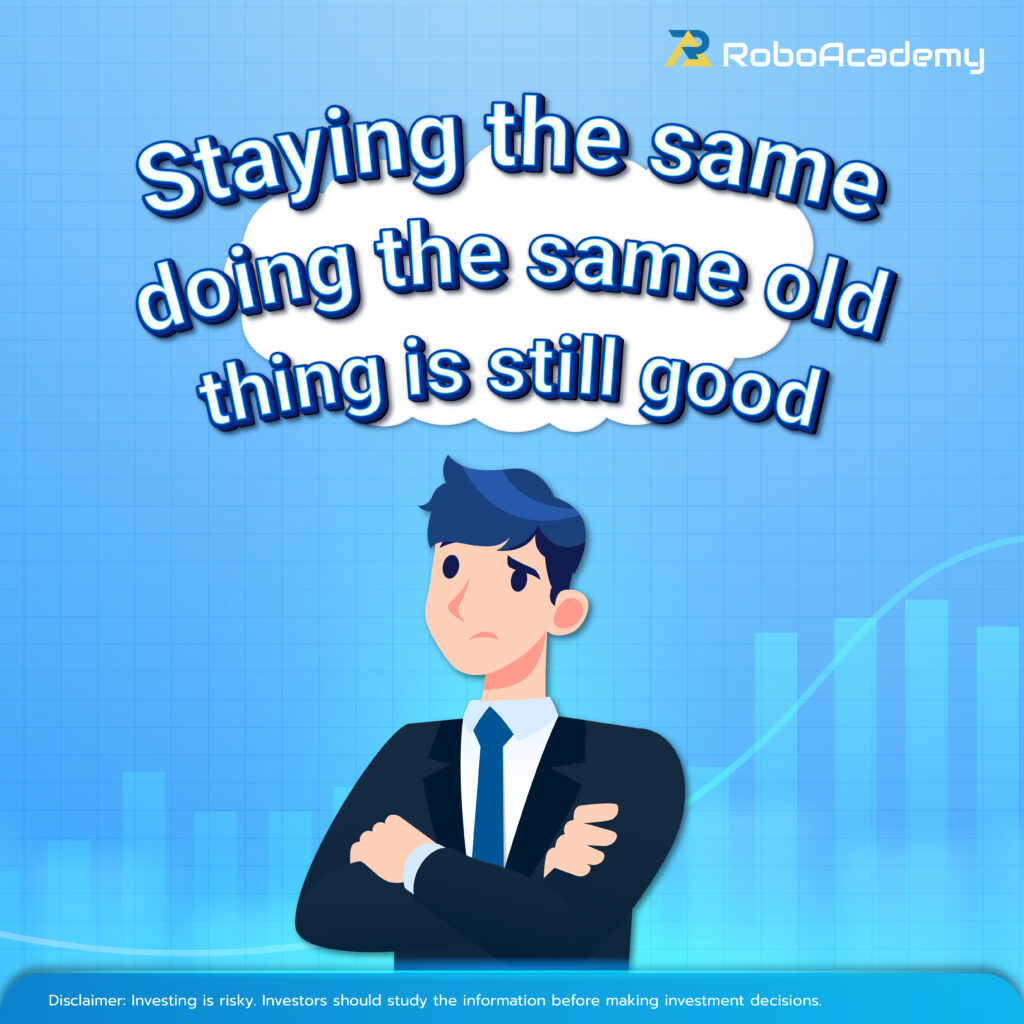
Staying the same, doing the same old is still good (Status Quo Bias).
Investors choose to hold stocks that they know or are involved with because they don’t want change (Quo Bias). Human nature is inert. This means that everything that already exists isn’t always so bad that you don’t want to change anything.
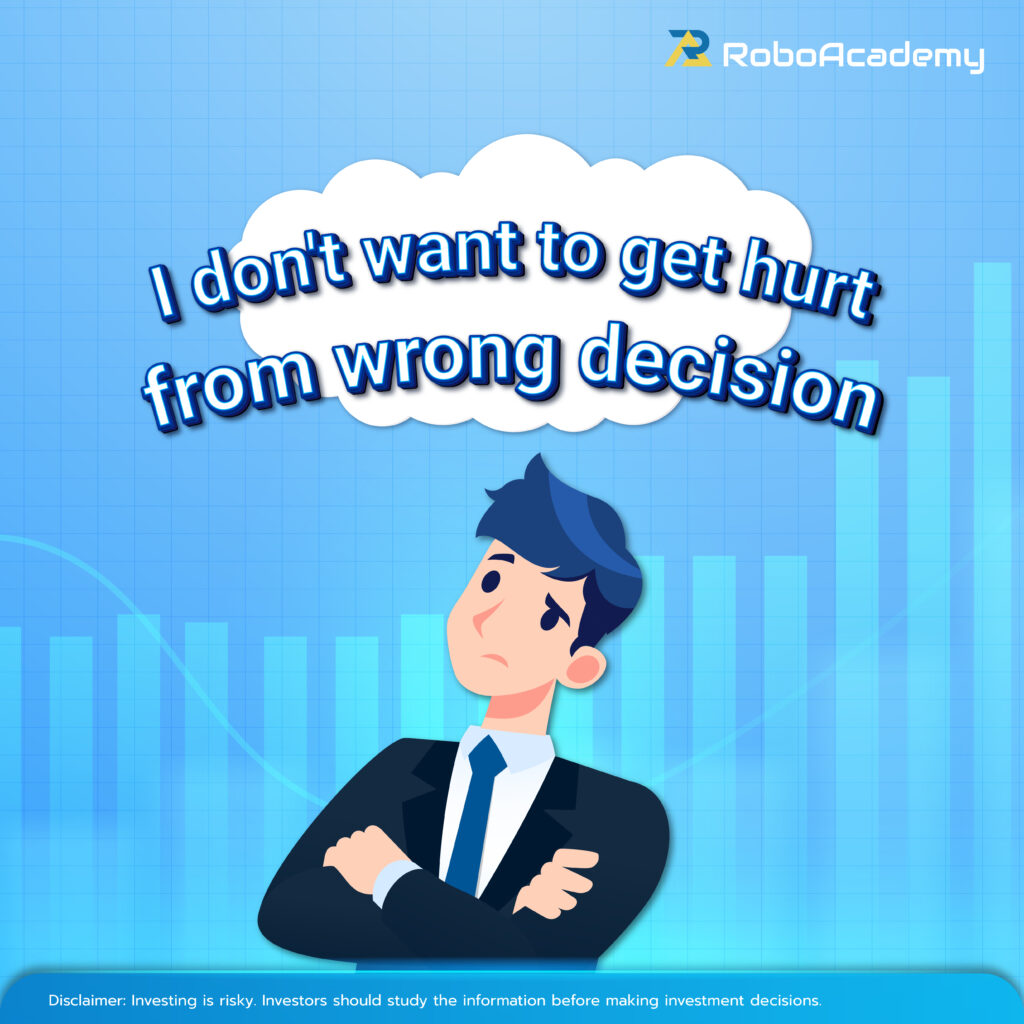
Don’t want to get hurt from making a wrong decision.
This bias arises because we don’t want to be hurt by our actions or decisions. Things that are caused by our own decisions will hurt us twice as much. Until causing investors to decide to hold low-risk assets and hold them for a long time because they don’t want to feel bad from making another wrong decision.
Follow us the various news and content at RoboAcademy page or other channels.
- LineOA : https://lin.ee/U2wJicl (@RoboAcademy)
- Facebook : facebook.com/RoboAcademyTH
- Instagram : instagram.com/roboacademy.th
- YouTube : youtube.com/RoboAcademy
Disclaimer: Investing is risky. Investors should study the information before making investment decisions.


